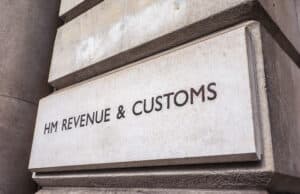In recent years, HMRC has faced a barrage of criticism over its customer service, specifically the high volume of unanswered phone calls.
The scale of the problem is considerable. Last year, an astounding ten million calls to HMRC went unanswered. To put this into perspective, that’s almost a quarter of all the calls made to the tax helpline. This represents a significant increase from 2018, when around one in ten calls went unanswered.
A closer examination of HMRC’s performance reveals some concerning trends. The time taken for HMRC to answer phone calls has increased significantly, with callers now left waiting on the line for an average of 3 minutes and 47 seconds. Furthermore, the percentage of calls answered by staff has dropped from 94% in February 2017 to just 89.5% in the same month of this year.
The situation is even worse for those calling the Agent Dedicated Line (ADL). Only 64.7% of these calls were connected to an adviser, a significant drop from the high of 78.7% last year.
Customer Satisfaction and the ‘Net Easy’ Parameter
The decline in performance has had a clear impact on customer satisfaction. The number of respondents who were either ‘satisfied’ or ‘very satisfied’ with HMRC’s phone, webchat and digital services fell to 76.7%, a drop from 78.5% in the previous month and a significant reduction from its peak of 82.3% last year.
HMRC’s ‘Net Easy’ parameter, which records the percentage of positive responses minus the percentage of negative responses, also saw a decrease from 57.6% in January to 53.3% in February.
The impact of these issues on accountants and taxpayers is significant. Many accountants have reported frustration with the service levels, particularly with the phone lines. The situation has led to some accountants simply avoiding contact with HMRC due to the difficulties in getting through.
For the average taxpayer, the problems with the helpline can be even more challenging. As pointed out by Public Accounts Committee chair Meg Hillier, many self-employed people do not have a team of tax advisers and rely on HMRC for assistance.
In response to the criticism, an HMRC spokesperson stated that the tax authority had improved its customer service levels “enormously over the last two years”. They highlighted the reduction in average response time from 12 minutes in 2015-16 to below five minutes for the past two years.
HMRC has also encouraged taxpayers to use online services where possible. According to HMRC chief executive Jim Harra, it is vital to reduce the need for customers to contact HMRC by simplifying customer journeys, improving guidance, and removing the causes of unnecessary contact.
One possible factor contributing to the problem is the shift towards remote working among HMRC staff. A recent report revealed that 80% of all HMRC staff now work from home. This shift may have had an impact on the ability of HMRC to handle calls, although the exact nature of this impact is not clear.
There have been calls for greater investment in HMRC to improve service levels. The accountancy bodies have urged the government to invest in HMRC to address the “unacceptably low level” of customer service. However, these calls have so far been unsuccessful, with the Chancellor failing to allocate additional funds for HMRC service levels in the Spring Budget.
The future of HMRC’s customer service remains uncertain. The current trends suggest there is much work to be done to improve the situation. However, with a clear recognition of the problem and ongoing efforts to address it, there is hope that improvements can be made.
As HMRC continues to encourage the use of digital services and works to simplify customer journeys, the hope is that the volume of unanswered calls will decrease and customer satisfaction will increase.
Nonetheless, it is clear that HMRC’s unanswered calls issue is a complex problem, with a range of contributing factors and significant implications for both accountants and taxpayers. It is a situation that deserves ongoing attention and scrutiny, with a need for continued efforts to improve customer service levels and ensure that all taxpayers can access the assistance they need.
Read more:
Ten million calls to HMRC go unanswered as government called to investigate ‘unacceptably low level” of customer service


























